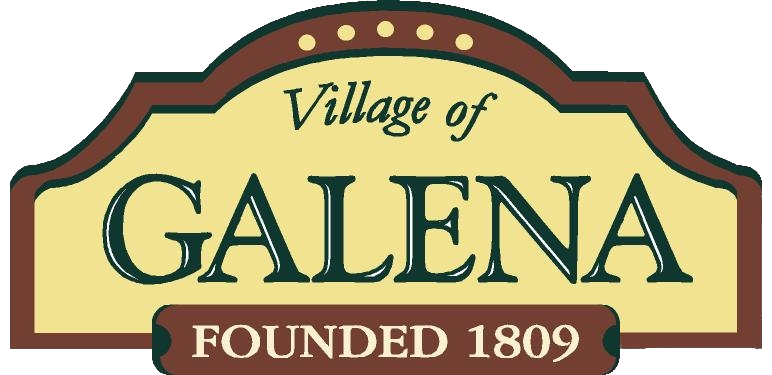
Planning & Zoning
Quick Links
Application For Zoning Certificate
Application for Change in Zoning District
Application for Right of Way Permit
The Village Zoning Officer
This member of the village staff is responsible for processing building permit applications, providing building and zoning code information to land developers, builders and residents, coordination of plan review and inspection services, which are done by outside contractors, and provides staff support to the Planning & Zoning Commission.
Village of Galena Zoning Officer:
Matthew Shock
Email: Zoning@galenaohio.gov
The Planning & Zoning Commission
The Planning & Zoning Commission has the responsibility to review and decide upon variance requests, conditional use requests, site plans, and other matters affecting the physical development and improvement of the Village. In addition, the Commission makes recommendations to the Village Council regarding final subdivision plats, annexation petitions, rezoning requests, or amendments to the Zoning Code. The Commission is also responsible for long-range planning including comprehensive planning, land use planning, and other studies as may be required or directed by Village Council.
The Planning & Zoning Commission meets third Wednesdays, as needed, starting 7:00 PM at Galena Village Hall, 109 Harrison Street.
Each meeting’s agenda is posted at these five public locations around the Village:
Outside bulletin board at Galena Village Hall, 109 Harrison Street
Bulletin board in the lobby of the Galena U.S. Post Office, 34 W. Park Street
Outside bulletin board at 13 W. Columbus Street
Outside bulletin board at Ruffner Park, 152 Harrison Street
Outside bulletin board at Miller Park, 268 N. Walnut Street
Our website: Planning and Zoning Meetings and Minutes
Vacancies on the Planning & Zoning Commission
Members of Galena’s Planning & Zoning Commission are appointed to serve three-year terms. However, a situation may arise whereby a Commission seat is vacated during a term.
See these details about the appointment process and how someone can apply for being considered to fill a vacancy.
How can property owners get involved?
Citizens are invited to attend Planning and Zoning Commission meetings, regularly scheduled for the third Wednesday of the month at 7:00 p.m. Citizens are also encouraged to attend Village Council meetings, regularly scheduled for the fourth Monday of each month at 7:00 p.m. Check the calendar or call the village offices to obtain scheduling updates. Specific questions and concerns regarding zoning and development should be addressed to Village staff at 740-965-2484.
Tips for presentations before the Planning & Zoning Commission and Village Council:
Homeowner groups should designate two or three representatives to speak on their behalf, rather than have 50 people say the same thing repeatedly. It is much more effective to ask your group to stand to show opposition or support.
The Planning & Zoning Process (Development Process)
The Village’s process for reviewing land development proposals and making decisions about them, is in accordance with state and federal regulations plus the Village’s own legislation. The results of various court cases also have a bearing on the process. Steps of the process are shown in this flowchart. Not all development proposals need every step of this process. Which steps of this process are needed depends on the nature of the proposal.
For example, does it involve…
…land currently outside the Village’s corporate boundary that is to be brought into the Village’s jurisdiction (called annexation)?
…change of the zoning designation?
…dividing one land parcel into more than one parcel?
…creation of a development plan?
…amending an existing development plan?
Here’s a broad overview of the Village’s development process, the exact steps and timeline varying with a project’s complexity:
Very basically, the process starts with an interested party informally discussing their idea with the Village staff, to learn about the Village’s process and expectations. The purpose of this step is for the staff to familiarize itself with the proposal and to provide preliminary comments and recommendations prior to the project owner’s formal application. This also affords the project owner the opportunity to evaluate the feasibility of their proposal. Staff will determine whether an application/project will be administratively reviewed or whether it will require a public hearing through the Planning & Zoning Commission, and will advise the project owner about what components will be needed in their formal application/proposal (for example whether a basic plot map is sufficient or whether more detailed mapping and technical studies are needed).
After the informal pre-application phase, the project owner may submit their application/proposal for official review. Depending on the nature of the proposal, the applicant may be required to perform various studies such as, but not limited to, traffic, environmental and economic. It is the responsibility of the applicant/developer to submit all required items and information and to ensure the submitted materials and information accurately responds to the requirements, comments and expectations. Incomplete submittals will be returned to the applicant without review. The applicant will also be expected to agree to cover the Village’s costs for reviewing such technical studies.
After receiving a formal application/proposal, the Village will review the application/proposal and determine whether it meets the regulatory requirements. A decision will be made accordingly.
This was an extremely broad overview of the Village’s development process which is also illustrated on the Village’s process flowchart. The exact steps and timeline vary with a project’s complexity. Contact the Village zoning inspector to schedule a consultation.
-
Planning is a process of developing long-range goals and objectives by which a jurisdiction decides what kind of future it wants and then establishes the policies and management tools to help in reaching that future. The document that sets forth the long-range goals that is intended to guide the growth and development of the community is called a comprehensive plan or master plan. See Galena’s Current Master Plan. Demographic data about Galena, the townships, and the county, can be found on the Delaware County Regional Planning Commission’s website, Community Profiles page.
-
Zoning is the most important tool to implement the master plan. Zoning works by regulating various aspects of how land may be used. The zoning ordinance designates acceptable and prohibited land uses within specific geographic areas or zones of the municipality. Zoning districts are established to promote compatible land uses within each defined area. See Village of Galena’s current zoning ordinance, zoning map, and development fees.
-
Code compliance is the prevention, detection, and investigation of violations of regulations that affect public health, safety, the general welfare of the community, business activities, building standards, land use, or municipal affairs. The regulations include various federal and state statutes plus village ordinances, all of which are in place to protect our health, safety, and quality of life. Details about Village of Galena’s code compliance functions can be found here.
Meet the Planning & Zoning Commission
-

Alison Cherubini-Hiller
Email: achillyer@galenaohio.gov
Term: 2024-2026
-
Kathy Krupa
Email: kkrupa@galenaohio.gov
Council Rep
-

Michelle Parsons
-

Seth Everitt
Email: severitt@galenaohio.gov
Term: 2025-2027
-

Mayor Jeff Kinnell
Email: mayor@galenaohio.gov




